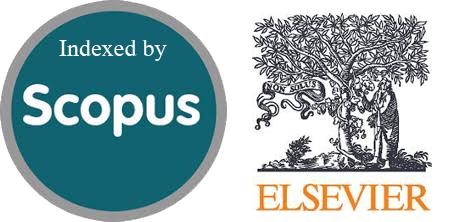Are Newly Graduated Pharmacists Competent to Perform Adequately in Hospitals? A Qualitative Study
DOI:
https://doi.org/10.54133/ajms.v6i1.427الكلمات المفتاحية:
Competency، Hospital Pharmacists، Iraqi Pharmacists، Performance، Qualitative studyالملخص
هل الصيادلة حديثو التخرج مؤهلون للأداء المناسب في المستشفيات؟ دراسة نوعية
الأهداف: هدفت الدراسة الحالية إلى تقييم مؤهلات وأداء الصيادلة حديثي التخرج واستكشاف العوامل التي تؤثر على أدائهم في المستشفيات العامة.
الطريقة: شملت هذه الدراسة النوعية مقابلات وجها لوجه شبه منظمة مع الصيادلة الممارسين في المستشفى. تم إجراؤه في الفترة ما بين مارس ومايو 2023 في محافظة كربلاء بالعراق. تم اختيار الصيادلة المشاركين بشكل مقصود والذين لديهم ثلاث سنوات أو أكثر من الخبرة العملية في المستشفيات الحكومية. تم نسخ المقابلات الصوتية. تم استخدام التحليلات المواضيعية لتوليد المواضيع والمواضيع الفرعية من المقابلات.
النتائج: شارك سبعة وعشرون صيادلة في المستشفى في هذه الدراسة. وتوصلت الدراسة إلى أن هناك عدة عوامل لها تأثير سلبي على أداء الصيادلة حديثي التخرج، بما في ذلك العوامل المرتبطة بالكلية والعوامل المتعلقة بالمستشفيات. وتشمل عوامل التعليم الأساليب الكلاسيكية للتدريس الجامعي والمؤهلات غير الكافية للكليات الجديدة. يمكن لميزات المستشفى التي تشتمل على المؤهلات غير الكافية للتعليم الطبي المستمر والأدوات والموارد أن تؤثر أيضًا على أداء الصيدلي. بالإضافة إلى ذلك، يؤثر العدد الهائل من الصيادلة سلبًا على تدريبهم ومؤهلاتهم.
الاستنتاج: وفقا لنتائج الدراسة، ينبغي التركيز بشكل أكبر على تعزيز المهارات العملية للصيادلة. يعد التعاون الوثيق والمتكامل بين وزارة التعليم العالي ووزارة الصحة أمراً محورياً لتعزيز مستوى أداء الصيادلة المحتملين في المستشفيات. وأخيرًا، يعد التحكم في عدد الطلاب المقبولين في كليات الصيدلة أمرًا بالغ الأهمية لتزويدهم بالتدريب المناسب
التنزيلات
المراجع
Anderson C, Bates I, Beck D, Brock TP, Futter B, Mercer H, et al. The WHO UNESCO FIP Pharmacy Education Taskforce. Hum Resour Health 2009;7:45. doi: 10.1186/1478-4491-7-45.
Austin Z, Marini A, Croteau D, Violato C. Assessment of pharmacists’ patient care competencies: Validity evidence from Ontario (Canada)’s quality assurance and peer review process. Pharm Educ. 2004;4(1):23-32. doi: 10.1080/1560221042000208593.
Saseen JJ, Ripley TL, Bondi D, Burke JM, Cohen LJ, McBane S, et al. ACCP Clinical Pharmacist Competencies. Pharmacotherapy. 2017;37(5):630-636. doi: 10.1002/phar.1923.
Guerreiro MP, Cantrill JA, Martins AP. Preventable drug-related morbidity: determining valid indicators for primary care in Portugal. Acta Medica Portuguesa. 2007;20(2):107-129. doi: 10.20344/amp.847.
Zeenny RM, Akel M, Hajj A, Sacre H, Hallit S, Salameh P. Descriptive assessment of graduates' perceptions of pharmacy-related competencies based on the Lebanese pharmacy core competencies framework. Pharm Pract (Granada). 2021;19(2): 2320. doi: 10.18549/pharmpract.2021.2.2320.
Paradis E, Zhao R, Kellar J, Thompson A. How are competency frameworks perceived and taught? An exploratory study in the context of pharmacy education. Perspect Med Educ. 2018;7:200-206. doi: 10.1007/s40037-018-0432-y.
Medina MS, Plaza CM, Stowe CD, Robinson ET, DeLander G, Beck DE, et al. Center for the advancement of pharmacy education 2013 educational outcomes. Am J Pharm Educ. 2013;77(8):162. doi: 10.5688/ajpe778162.
Bates I, John C, Seegobin P, Bruno A. An analysis of the global pharmacy workforce capacity trends from 2006 to 2012. Hum Resour Health. 2018;16(1):1-9. doi: 10.1186/s12960-016-0158-z.
Al-Jumaili AA, Hussain SA, Sorofman B. Pharmacy in Iraq: history, current status, and future directions. Am J Health-Sys Pharm. 2013;70(4):368-72. doi: 10.2146/ajhp120415.
Braun V, Clarke V. Using thematic analysis in psychology. Qualitat Res Psychol. 2006;3(2):77-101. doi: 10.1191/1478088706qp063oa.
Al-Jumaili AA, Al-Rekabi MD, Doucette W, Hussein AH, Abbas HK, Hussein FH. Factors influencing the degree of physician–pharmacist collaboration within Iraqi public healthcare settings. Int J Pharm Pract. 2017;25(6):411-417. doi: 10.1111/ijpp.12339.
Al-Jumaili AA, Sherbeny F, Elhiny R, Hijazi B, Elbarbry F, Rahal M, et al. Exploring job satisfaction among pharmacy professionals in the Arab world: a multi-country study. Int J Pharm Pract. 2022;30(2):160-168. doi: 10.1093/ijpp/riac011.
Al-Jumaili AA, Jabri AM, Al-Rekabi MD, Abbood SK, Hussein AH. Physician acceptance of pharmacist recommendations about medication prescribing errors in Iraqi hospitals. Innov Pharm. 2016;7(3). doi: 10.24926/iip.v7i3.443.
Al-Jumaili AA, Mohammed ZA, Yawuz MJ, Ahmed KK. Exploring Work satisfaction and characteristics of Iraqi pharmacist workforce. Braz J Pharm Sci. 2022;58. doi: 10.1590/s2175-97902022e19929.
Ali MM, Al-Jumaili AA. Appraising the role of pharmacists in medication reconciliation at hospital discharge: A field-based study. Al-Rafidain J Med Sci. 2023;5(1S):S57-63. doi: 10.54133/ajms.v5i1S.319.
Katoue MG. Enablers and challenges to pharmacy practice change in Kuwait hospitals: a qualitative exploration of pharmacists' perceptions. J Eval Clin Pract. 2021 Apr;27(2):272-279. doi: 10.1111/jep.13450.
Ibrahim I, Hassali M. The practice of Pharmacy in Iraq. HealthMED. 2014;8(11):1231-1234.
Donohoe KL, Mawyer TM, Stevens JT, Morgan LA, Harpe SE. An active-learning laboratory on immunizations. Am J Pharm Educ. 2012;76(10):198. doi: 10.5688/ajpe7610198.
Aburahma MH, Mohamed HM. Educational games as a teaching tool in pharmacy curriculum. Am J Pharm Educ. 2015;79(4):59. doi: 10.5688/ajpe79459.
Ahmed KK, Salman SS, Abbas WA, Alkaisy SW, Kathem SH. Sudden transition of pharmacy education from traditional to distance learning in the era of COVID-19: Action steps of a leading pharmacy school in Iraq. Iraqi J Pharm Sci. 2020;29(2):271-278. doi: 10.31351/vol29iss2pp271-278.
Ahmed KK, Al-Jumaili AA, Salman SS, Kathem SH. The students’ experience of hybrid-education model at the University of Baghdad College of Pharmacy: Lessons and future directions. Iraqi J Pharm Sci. 2021;30(2):269-277. doi: 10.31351/vol30iss2pp269-277.
Bureau U. Older People Projected to Outnumber Children.” The United States Census Bureau. 2019.
Education MoH. Student guide for admission to universities and private colleges for the academic year 2023-2024. In: Education DoPU, editor. Iraq2023.
Education MoH. Student guide for central admission 2023-2024. In: Department SaP, editor. Iraq; 2023.
M. A-H. Perspective future of Pharmacy Profession in Iraq, threats and opportunities Iraq: Syndicate of Iraqi Pharmacists. 2019.
Nasrullah Z, Al-Jumaili AA. Professional challenges facing pharmacists working at public hospitals in an Iraqi province: A qualitative study. Iraqi J Pharm Sci. 2023;32(Suppl.):204-213. doi: 10.31351/vol32issSuppl.pp204-213.
Health Mo. Pharmacists appointed in public Iraqi hospitals. In: Planning DoSa, editor. Iraq; 2023.
Watanabe JH. Examining the pharmacist labor supply in the United States: increasing medication use, aging society, and evolution of pharmacy practice. Pharmacy. 2019;7(3):137. doi: 10.3390/pharmacy7030137.
Covvey JR, Cohron PP, Mullen AB. Examining pharmacy workforce issues in the United States and the United Kingdom. Am J Pharm Educ. 2015;79(2):17. doi: 10.5688/ajpe79217.
Rasheed JI, Abbas HM. Implementation of a clinical pharmacy training program in Iraqi teaching hospitals. Iraqi J Pharm Sci. 2012;21(1):1-5. doi: 10.31351/vol21iss1pp1-5.
Augustin M, David SN, Aileen J, Devakumar G. A study on factors influencing competency of pharmacists in a tertiary care hospital. Indian J Public Health Res Devel. 2018;9(7):75-79.
Fakeye TO, Adisa R, Olukotun RT, Morawo PK. Hospital and community pharmacists' perception of the scope, barriers and challenges of pharmacy practice-based research in Nigeria. Pharm Pract (Granada). 2017;15(1):881. doi: 10.18549/pharmpract.2017.01.881.
Ahjel SW, Al-Jumaili AA. The Pharmacist’s missing role in the COVID-19 pandemic. Pharm Pract. 2020;11(2).1-2. doi: 10.24926/iip.v11i2.3249.
Goff DA, Ashiru‐Oredope D, Cairns KA, Eljaaly K, Gauthier TP, Langford BJ, et al. Global contributions of pharmacists during the COVID‐19 pandemic. J Am Coll Clin Pharm. 2020;3(8):1480-1492. doi: 10.1002/jac5.1329.
Al-Jumaili AA, Abbood SK, Abbas AN, Rafaeel HM, Mohammed FR, Ali AZ. Organization factors influencing nurse ability to prevent and detect adverse drug events in public hospitals using a patient safety model. Saudi Pharm J. 2021;29(10):1216-1222. doi: 10.1016/j.jsps.2021.09.003.
Abbood SK, Assad HC, Al-Jumaili AA. Pharmacist intervention to enhance postoperative fluid prescribing practice in an Iraqi hospital through implementation of NICE guideline. Pharm Pract (Granada). 2019;17(3). doi: 10.18549/pharmpract.2019.3.1552.
Jabri AM, Assad HC, Al-Jumaili AA. Pharmacist role to enhance the prescribing of hospital discharge medications for patients after heart attack. Saudi Pharm J. 2020;28(4):473-479. doi: 10.1016/j.jsps.2020.02.009.

التنزيلات
منشور
كيفية الاقتباس
إصدار
القسم
الرخصة
الحقوق الفكرية (c) 2024 Al-Rafidain Journal of Medical Sciences

هذا العمل مرخص بموجب Creative Commons Attribution-NonCommercial-ShareAlike 4.0 International License.
Published by Al-Rafidain University College. This is an open access journal issued under the CC BY-NC-SA 4.0 license (https://creativecommons.org/licenses/by-nc-sa/4.0/).










